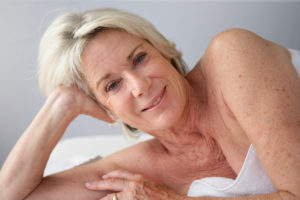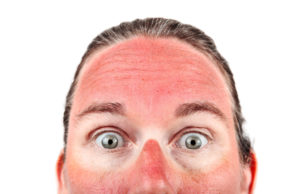Keep your Skin Healthy
As we age, our skin becomes thinner and more vulnerable to sun damage. There are things you can do to give your skin the extra protection it needs.
- If you are taking medicines, check with your doctor to learn if any of those affect your body’s reaction to sun, heat and fatigue.
- Use sunscreen frequently. Sunscreen with at least a 30 SPF is recommended before engaging in outdoor activities. Reapply sunscreen every two hours and after swimming or perspiring. And, don’t be fooled by cloudy days because the sun’s harmful rays can go through the clouds.
- Choose a shady spot! Use an umbrella and a wide-brimmed hat to protect against the sun’s UV rays. Wear sunglasses too, to protect your eyes.
- Aging skin is prone to dryness, so moisturize. Moisturizers prevent water loss for skin layers.
- Do it later. Reschedule some outdoor activities when the temperature is cooler in the early mornings or evenings.
Bruises
Older people may bruise more easily than younger people. It can take longer for these bruises to heal. Some medicines or illnesses may also cause bruising. Talk to your doctor if you see bruises and don’t know how you got them, especially on parts of your body usually covered by clothing.
Age Spots and Skin Tags
Age spots, once called “liver spots,” are flat, brown spots often caused by years in the sun. They are bigger than freckles and commonly show up on areas like the face, hands, arms, back and feet. Using a broad-spectrum sunscreen helps protect against two types of the sun’s rays and may prevent more age spots.
Skin tags are small, usually flesh-colored growths of skin that have a raised surface. They become common as people age, especially for women. They are most often found on the eyelids, neck, and body folds such as the armpit, chest, and groin.
Age spots and skin tags are harmless, although sometimes skin tags can become irritated. If your age spots or skin tags bother you, talk to your doctor about having them removed.
The A-B-C-D-E’s of Skin Cancer
Moles, birthmarks and other parts of the skin can show signs of skin cancer. Check these!
A = Asymmetry (one half of the growth looks different from the other half)
B = Borders that are irregular
C = Color changes or more than one color
D = Diameter greater than the size of a pencil eraser
E = Evolving; this means the growth changes in size, shape, symptoms (itching, tenderness), surface (especially bleeding), or shades of color
See your doctor right away if you have any of these signs to make sure it is not skin cancer.
OOPS! Got a sunburn! What to do?
How to Treat Sunburn
Moisturize the skin with a lotion containing Vitamin E to lessen peeling
Drink extra water, juice and sports drinks because sunburn draws fluid to the suface of the skin and away from the rest of the body.
Take ibuprophen for swelling and redness especially in the first 48 hours.
If you have any itching, place a cool, moist washcloth over the area. Try not to scratch!








Comments are closed.